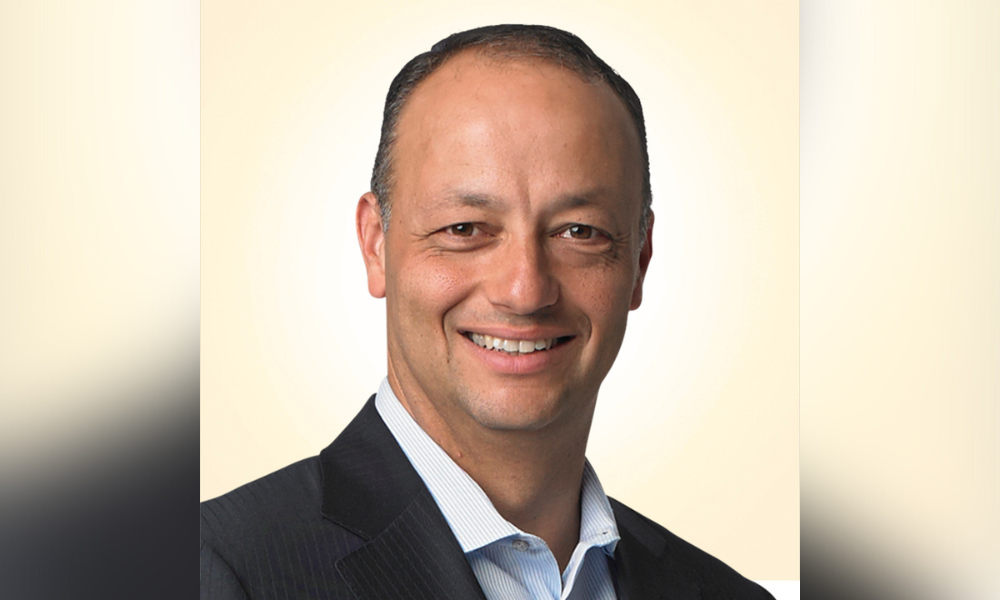
Both internal and external relationships need to be re-established as restrictions lift, says Levy

Law firm culture is a term that is often overused, but when David Levy speaks about it, he means something concrete. As managing partner at Howie, Sacks & Henry LLP since 2014, Levy says his focus in 2022 will be on re-establishing many of the fundamental relationships to his firm’s culture, which softened during the pandemic.
“We're a firm that has always very much valued our relationships, not only with our staff internally, but externally. Our relationships with the medical professionals and healthcare providers who help our clients, our relationships with our colleagues at the bar. We were always big fans of the old fashioned, ‘do a discovery with someone and go for lunch afterwards.’”
Levy has many long-standing relationships through his work at the personal injury boutique, having been with the firm since its founding in 2000 when he joined as a young associate.
His practice, he sums up succinctly, has “always been to help seriously injured accident victims and their families.”
“Our firm has grown substantially since I assumed the chair back in back in 2014,” Levy says. “We brought in a series of new lawyers [and] a new practice group, our class actions and mass torts group.”
Just before the pandemic, the firm invested heavily in a renovation. They had redone their boardrooms, modernized their offices, brought in WebEx as an office tool and created hotelling spaces.
“The investments that we had made in technology, [although we did not anticipate] precisely how we were going to use them, became extremely valuable to us [during the pandemic]. We were actually ready to go right away because everything had already been set up. We were way ahead of the curve, through what is admittedly some element of luck, by having invested in this before the pandemic started.”
Levy laughs when he recalls how resistant many lawyers and courts were, initially, to using virtual technology. “There were a couple of very noteworthy cases where insurers said, ‘no, we're going to wait for the pandemic to be over,’ which seems sort of amusing at this point.”
Now, Levy says, “the number of discoveries and mediations that have been done virtually is too high to count.”
Although Levy says the shift to virtual didn’t significantly impact billings, since the firm is paid through contingency arrangements, adjusting to virtual hearings was very disruptive at first.
“It was very, very time-consuming.”
Yet, Levy says many things are not likely to go back to pre-pandemic ways. “There are certain types of court attendances, which just do not need to be in person. Scheduling court, for example. Because there are so many cases on a list, you could be there for hours to pick dates on your case, and you're speaking to it for 30 seconds. [It is] really a tremendous waste of time.”
For other proceedings, though, Levy is looking forward to a return to in person. “As far as trials go, my expectation, and certainly my hope is, that the courts will recognize the value and the utility of this kind of hybrid model.”
Levy explains that hybrid would likely be in person for witness testimony, credibility determinations, and oral arguments, but virtual proceedings can reduce disruption and costs for many expert witnesses.
When experts had to attend in court, “there's always a little bit of scrambling where they now have to rearrange schedules, cancel office days, that sort of thing. It's quite disruptive to their practice and, of course, to the patients whose appointments are being cancelled or postponed.”
Levy’s firm is also looking forward to having lawyers back in the office, in a hybrid arrangement, like many firms. “We don't believe that permanent work from home setups are conducive to the kind of firm culture we want to have.”
Levy cites the elusive but real law firm culture when speaking about his priorities in 2022.
“Everything that we've always done has been premised on the notion of us doing it together. The advantages of being together, the obvious ones and even the subtle ones, we feel are quite significant. One of my priorities as managing partner is to make sure that while we both embrace the technology and provide the sort of flexibility that everybody would want to see, but that we do so in a way that doesn't sacrifice those other priorities.”